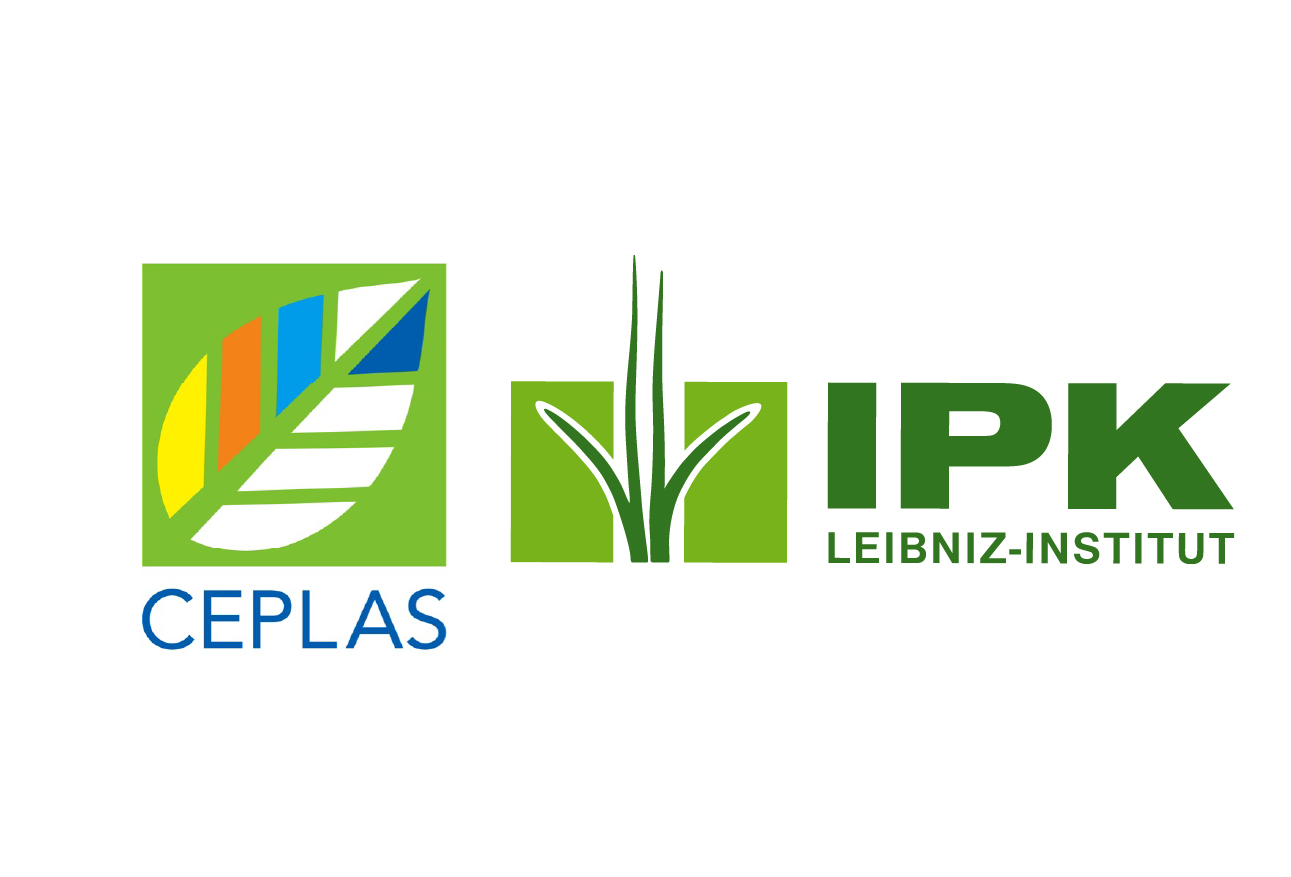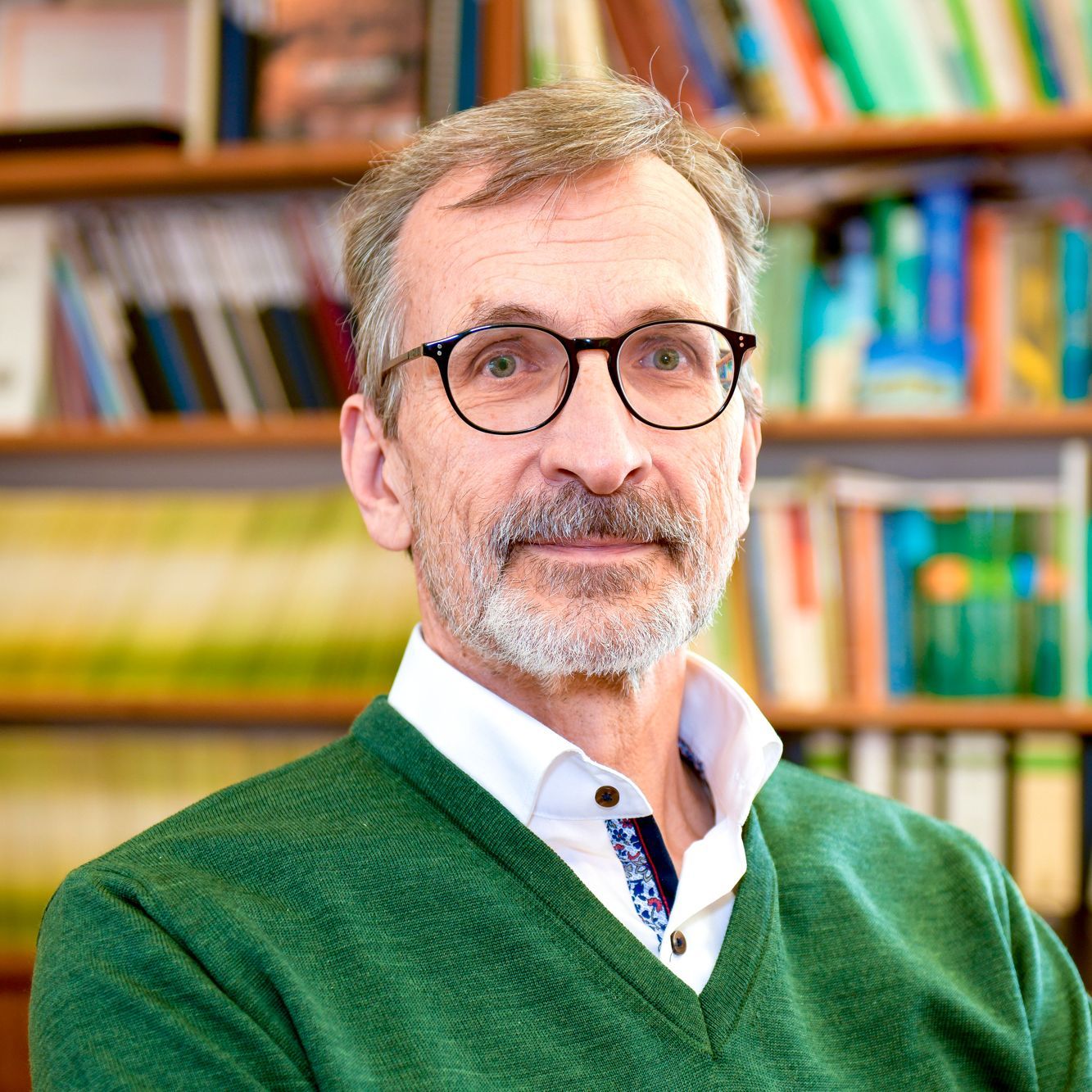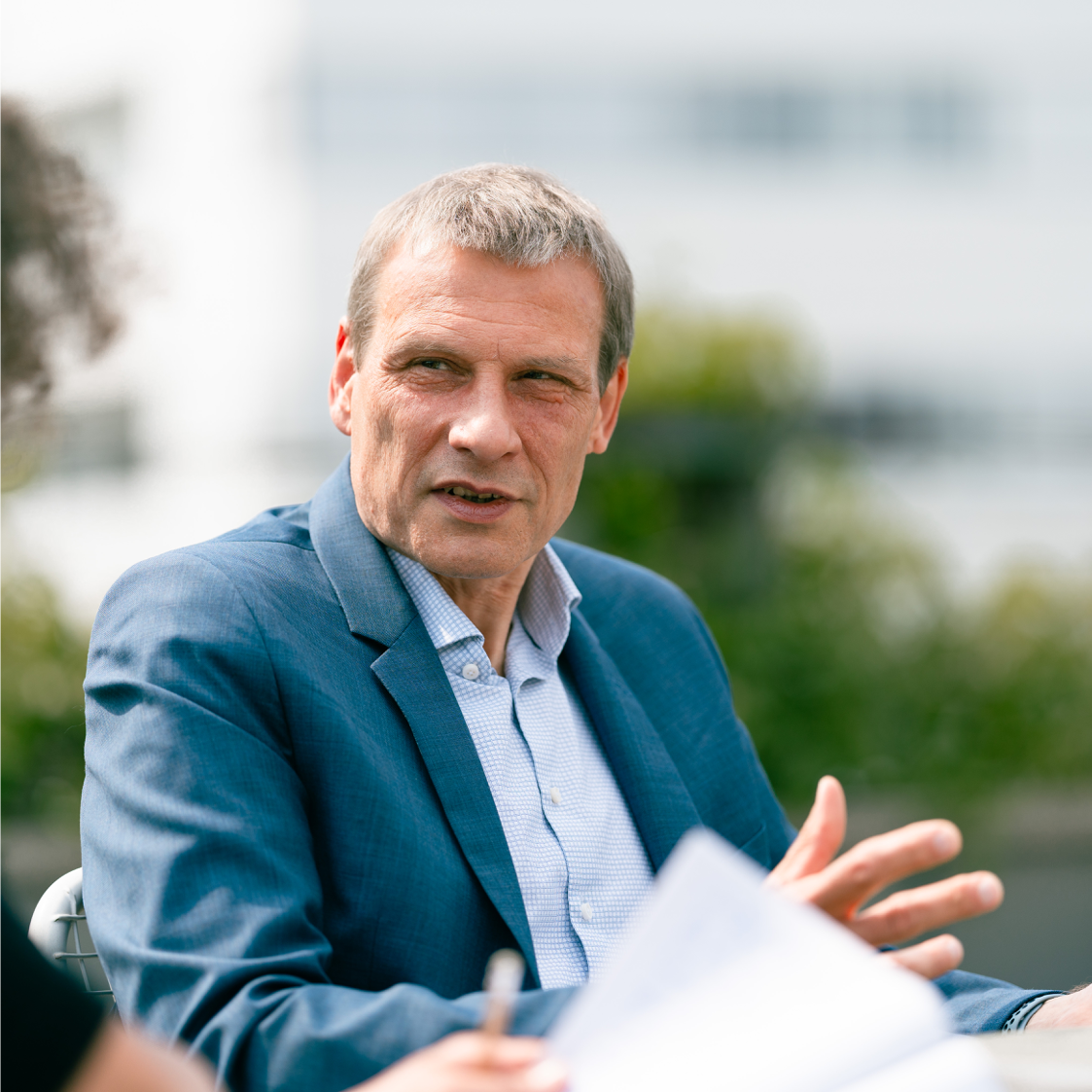Two strong partners come together
CEPLAS and the IPK Leibniz Institute will cooperate closely in future to help shape a new quality of plant research by combining their expertise and resources. What are the first projects? What challenges must be overcome? And what makes the cooperation so unique? In this interview, Prof. Dr. Andreas Graner, Executive Director of the IPK, and Prof. Dr. Andreas Weber, Spokesperson of the Cluster of Excellence, share their thoughts.
How did the idea for a cooperation between CEPLAS and IPK come about?
Andreas Graner: The CEPLAS Cluster has already established itself with great success as a permanent fixture in national and international plant research within the framework of the Excellence Initiative. Therefore, it was obvious to all of us that two such high-profile protagonists in plant research as CEPLAS and the IPK should, in a second step, identify interfaces for cooperation and bring together complementary competences. In this way, we can strengthen and advance plant research as a whole.
Has there ever been a cooperation in this form before? And what is the significance of the project for Germany as a research location?
Andreas Weber: No, to my knowledge there has never been a cooperation of this kind in the field of molecular plant research in Germany. What is special about it is that we are bringing together three research institutions, the Leibniz Association, the Max Planck Society, the Helmholtz Association plus two universities. We hope that this cooperation will also have an impact on Germany as a whole as a research location.
That sounds like there is need for action.
Andreas Weber: Yes, that's true. We have to make sure that we remain competitive internationally. Countries like the USA think much more strategically, and China spends much more money on plant research than Germany.
What does the IPK bring to the cooperation? And what expectations do you personally, but also as an institute, have of the planned cooperation?
Andreas Graner: With the Federal Central Ex situ Gene Bank and our phenotyping platforms, we are contributing important research infrastructures to the cooperation. In addition, we have extensive expertise in the field of genome research and molecular plant physiology. But, of course, this is not a one-way street: conversely, we benefit from the expertise built up at CEPLAS in the fields of photosynthesis and microbiome research as well as the cooperation with the graduate programme established at CEPLAS.
What do you expect from the cooperation with the IPK? And how can CEPLAS benefit from it?
Andreas Weber: Both partners have overlapping interests and complement each other well. The goal is to get as holistic a view of plants as possible. And we are taking a big step in that direction with the current cooperation.
What will be the first concrete steps and projects?
Andreas Graner: The CEPLAS-initiated Summer School, in which IPK scientists are participating for the first time, is starting this week. In September, a CEPLAS delegation will visit the IPK in Gatersleben and we are still working on a position paper to be presented in autumn on the occasion of a planned policy workshop. In addition, there are already some topics that will be worked on from autumn 2022 within the framework of five jointly supervised doctoral theses.
Is there a concrete start for the cooperation? And what is the time frame for the cooperation?
Andreas Weber:The presentation of the position paper in autumn marks the official start of the cooperation for us. This will lay the foundation for the cooperation, which should last at least ten years. We are firmly convinced that the cooperation will gain momentum.
How will the cooperation be financed?
Andreas Graner: At the moment, the cooperation is supported exclusively by on-board funds. For the future, however, we are also striving to raise third-party funds.
Andreas Weber: This is a departure from the usual approach. Usually you write a project proposal and hope to be able to raise funds but we are doing this the other way around and starting with our own funds. This shows that we are firmly convinced of the success of our cooperation.
Will the cooperation remain limited to IPK and CEPLAS or are you open to new partners?
Andreas Weber: On the one hand, several partners are already involved through CEPLAS. On the other hand, we should initially concentrate on tackling the first realisable projects, which can then serve as successful examples of the efficiency of the cooperation. In the medium term, however, we are open to further partners. The questions we have to answer in plant research are simply too big. This is only possible in cooperation with many partners, including international partners.
How can young scientists get involved in the cooperation? And how can they benefit from it?
Andreas Graner: PhD students benefit from the graduate programme. Also in addition to the joint summer school, the Plant Science Student Conference which our PhD Student Board organises together with the Leibniz Institute of Biochemistry in Halle, is another opportunity for young scientists to exchange ideas and build their own networks. After more than two years living with Corona, I think it is very important that especially young people at the beginning of their scientific careers communicate actively again - not only by means of video conferences.
A "Centre for Translational Plant Biodiversity Research" is to be established as an umbrella under which the cooperation between IPK and CEPLAS will take place. What exactly will be researched there?
Andreas Graner: As the name suggests, the centre will deal with issues in the field of biodiversity research, ranging from basic research to applied issues, e.g. concerning plant breeding.
Andreas Weber: Our goal must be to better understand biodiversity. At its core is the question of how variations in the DNA sequence in different environments affect traits and characteristics. Unfortunately, in biology, unlike in physics, we have only a few theoretical foundations. But our vision must be to be able to make predictions about traits and properties based on the respective DNA. This would save us several years in the development of new varieties.
The challenges are great, not only due to advancing climate change and the growing world population, but at the same time the window of opportunity to initiate important changes is no longer open for long. How great is the pressure to act in your view?
Andreas Weber: The pressure to act is enormous, and the time we have is getting shorter and shorter. To put it bluntly: the hut is actually already on fire. We have regions here in North Rhine-Westphalia where warming has already exceeded 1.5 degrees Celsius over the past 50 years. All this has dramatic effects on weather patterns. On the one hand, there are more and more heavy rains and floods, on the other hand, we experience weeks of drought. For plant research and breeding, this means that the time periods for developing new varieties in the future can no longer be ten years or more under any circumstances. We definitely need faster solutions.
What then are hopeful approaches that should be pursued in your view? And how can research concretely help agriculture and contribute to more sustainable food production?
Andreas Graner: So far, we have placed a strong focus on crops such as barley and wheat, which are also of great economic importance. However, this is no longer sufficient to meet the challenges of the future. We must therefore increasingly turn our attention to plants that have not yet been of great economic importance. We need a more diverse and sustainable agriculture. To achieve this, we also need to study crop rotations and nutrient cycles even more intensively. Our goal is to understand the genetic diversity of crops in their temporal, spatial and functional dynamics and to make it usable for breeding improvements.
Big data is also playing an increasingly important role in plant research. To what extent is this reflected in the cooperation?
Andreas Weber: To be clear, we can only achieve our ambitious goals with big data. And in this area, really outstanding pioneering work has been done at the IPK in recent years. This plays a decisive role in the work of the "Center for Translational Plant Biodiversity".
In the international context, the focus is often on the United Nations' Sustainable Development Goals and the European Union's Green Deal. To what extent do these two guidelines also set the framework for the cooperation between CEPLAS and IPK?
Andreas Graner: Our aim is to combine the findings of our excellent basic research with relevant social issues and challenges. The aim is to develop innovative approaches to solving societal challenges and objectives, such as those formulated by the FAO, the EU or IPBES, which are of course a guideline for us. And we are very confident that we can make a substantial contribution.
Compared to other fields, such as medicine, plant research is considered rather a niche area. Will the importance of plant research increase?
Andreas Weber: I would disagree with you there. Plant research has never been a niche discipline - at least in terms of importance and perception. However, you are right about the role of plant research in research funding. Our discipline is massively underfunded in Germany. That is why we also want to set an example and raise awareness of the importance of plant research.
Short version of the interview in a video:


